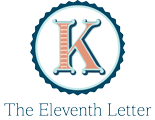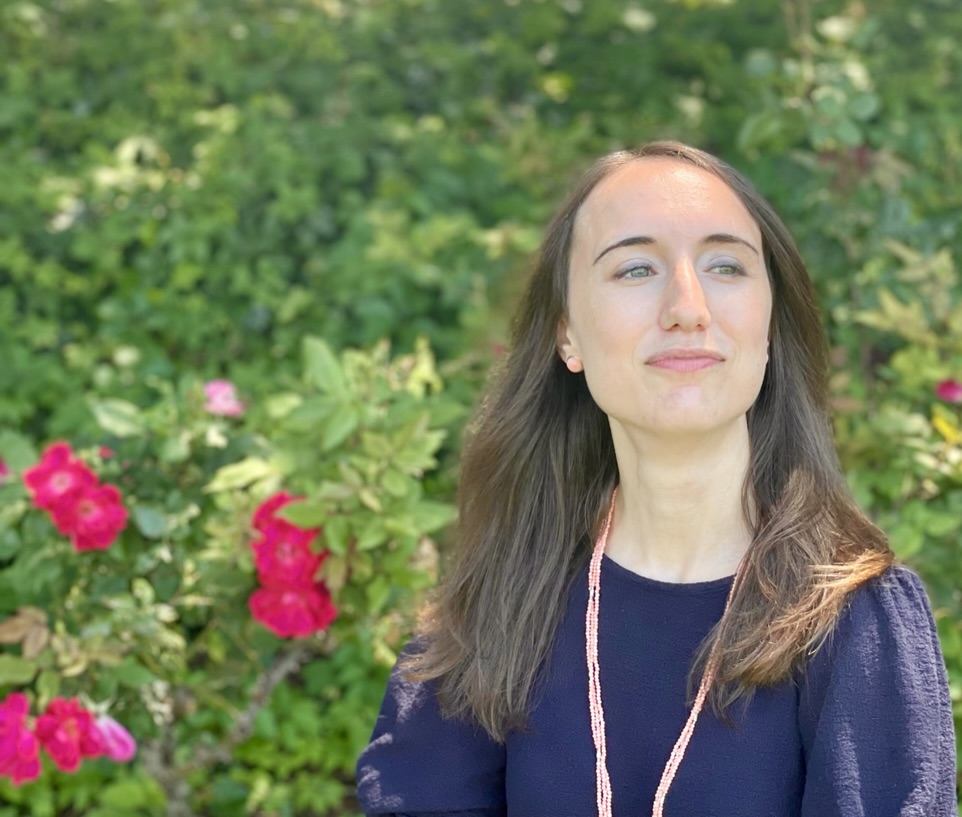Liana Johnson is a writer living in New York City. Her work appears in MoonPark Review, The South Shore Review, and Tiny Molecules. She is a reader at Black Fox Literary Magazine and has an MFA in writing from Vermont College of Fine Arts.
Jocelyn Winn: You’re very diligent about carving out writing and reading time for yourself, which is completely enviable. I’ve also had the honor of going away with you many times on self-guided retreats and residencies. What’s your advice for writers who want to create their own getaways?
Liana Johnson: One thing that’s helpful is to organize a retreat with your writing friends because it feels like more of a commitment—and it’s more fun. As you know, during our retreats, we usually do our independent work during the day, and then have dinner together and do an informal reading in the evening. But it’s also a cool experience to do a solo retreat. Either way, Airbnb or VRBO are usually my go-tos for finding a place. I usually set some criteria to narrow things down: How much are you willing to spend? Do you want to be in a city or town where you can walk to cafes, restaurants, etc.? Or do you want to be secluded in nature? How far are you willing to travel?
For anyone who lives in New York State, I recommend checking out Saltonstall—during their off season, they rent out their space to writers and artists at really low rates. Plus, there will likely be other writers there at the same time. That was one of the first places I did a solo retreat for a long weekend, and I was totally hooked.
The last thing I’ll say is that carving out the time (and money) for a getaway can create pressure to “get things done.” I’ve fallen into that trap and gotten down about not achieving exactly what I wanted. But the whole point of that time is to get away from the rigid schedules of our regular lives. And it’s also a retreat for your health, too. I think taking long walks, eating leisurely meals, having some wine, and treating yourself are as important as the writing part. I’m not always good at following this advice, but it’s good to at least have that in the back of your mind when you go on your retreat.
JW: I know you mentioned having recently devised a brand-new writing plan, can you give us a sneak peek?
LJ: I’m actually just trying to get back to the basics, sort of (re)building my writing practice.
For a while I got into the checkmark method: You write 150 words a day, and then in the back of your notebook note the date and put a check next to it. Trying a method I wasn’t used to taught me that doing a small amount each day really worked for me. Until that point, I’d always thought I needed to write for a couple hours at a time to get something done. In fact, I think that was advice I heard once, that you need at least two hours a day to write. There’s so much bad advice out there, like you have to write every day, or whatever. One of the reasons I liked the checkmark method is it doesn’t take much effort, but over time it adds up.
Now I’m trying a similar approach except instead of my goal focusing on the number of words, it focuses on number of minutes. It’s a simple plan: Write for 30 minutes in the mornings before work, and read for 30 minutes in the evening. This works a bit better for me because I can use the time for whatever I need: working on a new draft, revising a story, submitting, etc (whereas number of words felt more geared toward new work).
Making this goal felt meaningful to me, almost freeing, because I allowed myself to set a realistic expectation that works for the way I operate. Do I do 30 minutes every single day? No. And I count lots of different things as “writing,” like if I go to a literary event, or if I submit to journals, that’s my 30 minutes that day. It feels more manageable, and because it fits into my life, I’m more likely to keep doing it.
JW: I like your spelling of “(re)building” a writing practice. As in giving ourselves permission to adapt our routines to new situations, new ages, new understandings. When can you tell it’s time to change your current practice?
LJ: For me it’s time to rebuild and rethink my practice when I’m not writing regularly. Habits take a long time to build, but not that long to fall apart. Looking back at last year, for example, there were big stretches when I wasn’t writing because I had other things going on: I healed a broken leg, I planned my wedding, I got a new role at work. The feeling that you should always be writing, at least for me, can kind of stifle creativity. Of course, when I was ready to get back into the habit, I was like, what did I used to do? When did I write? Which stories was I working on? Figuring out where to begin is a big mental barrier for me, and that’s when I feel the need to make a new plan.
Sometimes that means creating a new routine because your life has changed, or you’ve changed, and what worked before might not work as well now.
JW: Many wellness books are in line with this idea of creating habits and ways of being that are organic to each of us versus a one-size-fits-all regiment. I’m thinking of James Clear’s book Atomic Habits or the book you told me about boundaries. Why do you think these concepts seem so radical to contemporary society, and are they useful to writers?
LJ: Yes, I love that idea. I don’t know why it feels so radical to us to do things our own way. Maybe it’s because mimicry comes so naturally to humans—I don’t mean that in a bad way, just that a way we learn is by seeing what others do and trying it. And when you see somebody successful (by whatever measure), you want to do what they did.
I haven’t read Atomic Habits, but it’s been on my list! As you know, I’m obsessed with the book about boundaries (Set Boundaries, Find Peace by Nedra Glover Tawwab). I think books like these are useful to writers. In order to set a boundary, you have to know what you want, what you like, what you don’t like. Anything that enables you to get to know yourself better will probably also help your writing. And of course, without boundaries, you may never find the time to write. There’s a whole chapter dedicated to setting boundaries with yourself, which can play into your writing habits and routines.
JW: How do you feel about guided programs, such as Julia Cameron’s The Artist’s Way, which is celebrating its 30th anniversary and having a bit of a nostalgic comeback?
LJ: I love guided programs. I have to admit, I started The Artist’s Way last year and only got a few weeks in (because of my capacity, not lack of interest), but I got so much out of even that small portion. I still do some aspects of Cameron’s approach, like the morning pages, and I’m planning to restart the whole thing later this year. Stuff like that can be a great jumpstart when I’m stalled. Routines are great, but they can turn into ruts, and infusing some new ideas or ways of looking at creativity can help turn things around. It’s interesting when compared to your last question, because The Artist’s Way is prescriptive. But while the process is prescriptive, what you discover and experience is unique for each person, I imagine.
JW: What’s an example of a practice that worked for you, one that didn’t? And perhaps how you set those parameters of success.
LJ: One example I can share is with revision. I used to edit a draft in one document. But now, I often start a new, blank document, and I retype the story, referring to the current draft and making changes as I go. I don’t always retype the entire draft from scratch; if there’s a scene that was working in the original I might copy/paste it in. But writing in a new document this way enables me to crack things open more. It’s easier to add new scenes or cut entire sections because I don’t feel as tied to what’s in the current form, and I’m able to fill in gaps that I might have otherwise missed. Once I get to later in the process, when the changes aren’t as big, I’ll just edit in the same doc.
I think I started doing this after I went to the library to write and I somehow got locked out of my Microsoft account, so that I could see my documents but not edit them. And I was too lazy to fix it right then, so I just started handwriting the revision in my notebook, referring to the current draft on the laptop. The new beginning I wrote was way better. Sometimes laziness pays off! I also once took a One Story class about story beginnings, and I believe the instructor Susanna Daniel does something similar, which she called a “side-by-side” revision, so I may have gotten the idea from her.
JW: Best ideas for writers to combat becoming overwhelmed not so much by doubt but by the sheer possibility of available avenues to a writing practice?
I get overwhelmed by that all the time. The only idea I have is something I’m not very good at doing, which is to trust yourself. I think you know if something isn’t really working for your practice, and I think you can feel it when you’ve found an approach that opens things up for you, like I found that day at the library. Let yourself do what you’re drawn to. If you’re not sure what you’re drawn to, I’d say experiment. Try writing at different times of day or for various lengths of time. Journal about your writing practice, and you might find that you discover more about what’s working and what’s not. Ask other people what they do and try it out. And notice how you feel doing it, and what’s going on with your work. Getting that external input, and then using your judgment on what works for you, can be really valuable.
Thank you, Liana!!
Find Liana Here:
- @lianasays_hi

